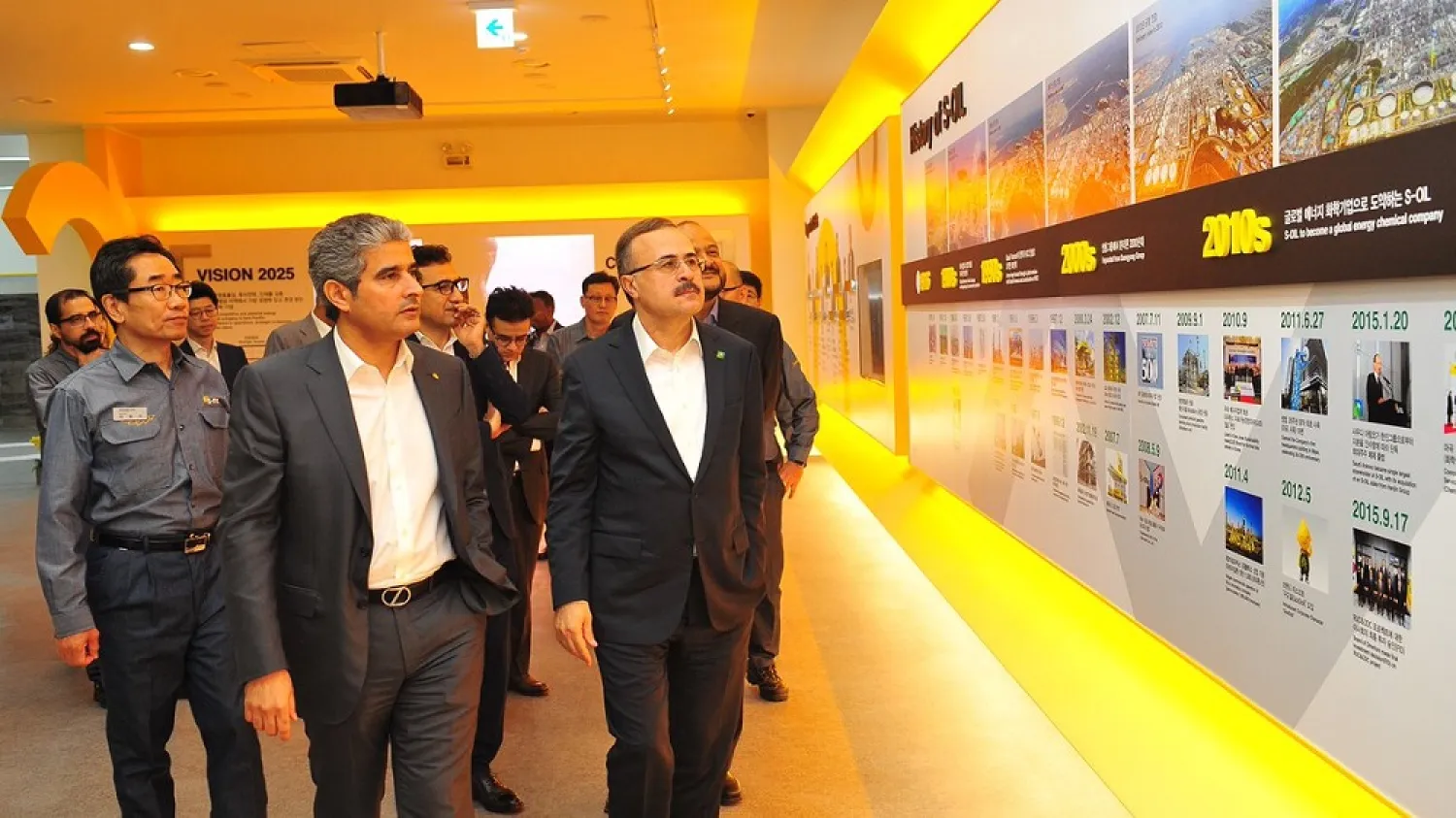Saudi Aramco can meet the oil needs of customers using its spare capacity despite growing concerns of developments in the Gulf, according to President and CEO of Aramco Amin Nasser.
Recent attacks on oil tankers near Hormuz Strait have raised concerns about the safety of ships using the strategic shipping route.
“What’s happening in the Gulf is definitely a concern,” Reuters quoted Nasser, who was in Seoul before a visit by Saudi Crown Prince Mohammed bin Salman, Deputy Prime Minister and Minister of Defense.
He explained that the region went through a number of crises in the past and Aramco always met its customer commitments.
Aramco had no plan to increase maximum output capacity of 12 million barrels per day (bpd), given its current output was well below that level.
“If you look at our production, it is hovering around 10 million bpd so we do have additional spare capacity.”
Nasser said the company, South Korea’s top oil supplier, wanted to increase crude oil supplies to the Asian nation where it has partnerships and investments with South Korean refiners.
Aramco supplies between 800,000 bpd and 900,000 bpd to South Korea.
Sources familiar with the matter told Reuters that Aramco will sign a memorandum of understanding with state-run Korea National Oil Corp (KNOC) for crude storage.
The sources said Aramco planned to seal a 20-year deal with South Korean refiner “Hyundai Oilbank” to supply 150,000 bpd a year of Saudi crude, while Aramco’s trading arm planned to sign a refined products offtake agreement with the company.
Aramco said in April it had bought a 17 percent stake in Hyundai Oilbank. It is also the biggest shareholder in South Korea’s No.3 refiner S-Oil.
The Saudi company has been eyeing gas assets in the United States, Russia, Australia and Africa.
Nasser said Aramco was in talks to buy a stake in Russian gas company Novatek’s Arctic LNG-2 project.
He also said Aramco was in discussions about buying a stake in India’s Reliance Industries and in talks with other Asian companies about investment opportunities.
“We will continue to explore opportunities in different markets and different companies, and these things take time,” he said.
On Monday, Russian Energy Minister Alexander Novak said Moscow welcomes the investments of major global players in the oil and gas market.
Novak welcomed all specialized companies in the market willing to invest in LNG production and consumption.
The minister told Sputnik news agency that talks about Saudi Aramco joining Russian gas producer Novatek’s Arctic LNG 2 project are still taking place.
He reported that so far, the negotiations have not been completed, but he welcomed the investment in this project by Saudi Arabia, reiterating that the deal will be in accordance with the terms of mutual benefit suiting all investors.
Earlier this month, Saudi Energy Minister Khalid al-Falih revealed Riyadh’s interest in buying shares in Russia's largest natural gas project.
Speaking on the sidelines of the St. Petersburg International Economic Forum (SPIEF), he said the Kingdom was studying the possibility of buying shares in Yamal project and not just buying gas from Russia.









